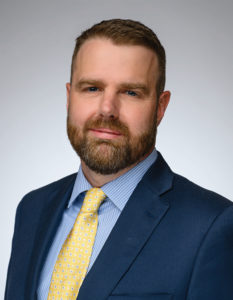The Community Economic Effects of New Distribution Centers: How We Used REMI
Click here to view the report
Click here to view a recording of this webinar
Distribution centers, or fulfillment centers, are a crucial piece of the overall economy, and this has become increasingly true as online commerce continues to grow. More distribution centers have become necessary to meet the increase in demand caused by Covid-19 and related online shopping trends. Still, some critics believe that these centers are harmful to local economies. The U.S. Chamber of Commerce conducted an analysis of the direct and indirect regional economic impacts of distribution centers to test this claim.
In this webinar, Mr. Dubay will discuss how these distribution centers affect Metropolitan Statistical Areas (MSAs) through direct job creation and the associated ripple effect in communities. Mr. Dubay will use case studies and the REMI model as the backbone of his analysis.
Speaker:
Curtis Dubay
Chief Economist
U.S. Chamber of Commerce

Curtis Dubay is the Chief Economist at the U.S. Chamber of Commerce. He tracks the condition of the economy, analyzes the impact of public policy on economic growth, and runs the Chamber’s Chief Economists Committee. Previously, he was senior economist at the American Bankers Association and a research fellow in tax and economic policy at The Heritage Foundation. He also worked at the accounting firm PricewaterhouseCoopers (PwC) and at the Tax Foundation.
Dubay has researched and published frequently on a wide range of tax and economic issues. He is regularly quoted by the press and has appeared often in the media, including on CNBC, Fox Business, Fox News, and C-SPAN. He has testified before Congress several times and been cited in newspapers such as The Wall Street Journal, The New York Times, The Washington Post, USA Today, and Politico.
Dubay received his master’s degree in economics from the University of Connecticut and his bachelor’s degree in economics and leadership studies from the University of Richmond. He resides in Washington, D.C., with his wife and three sons.







